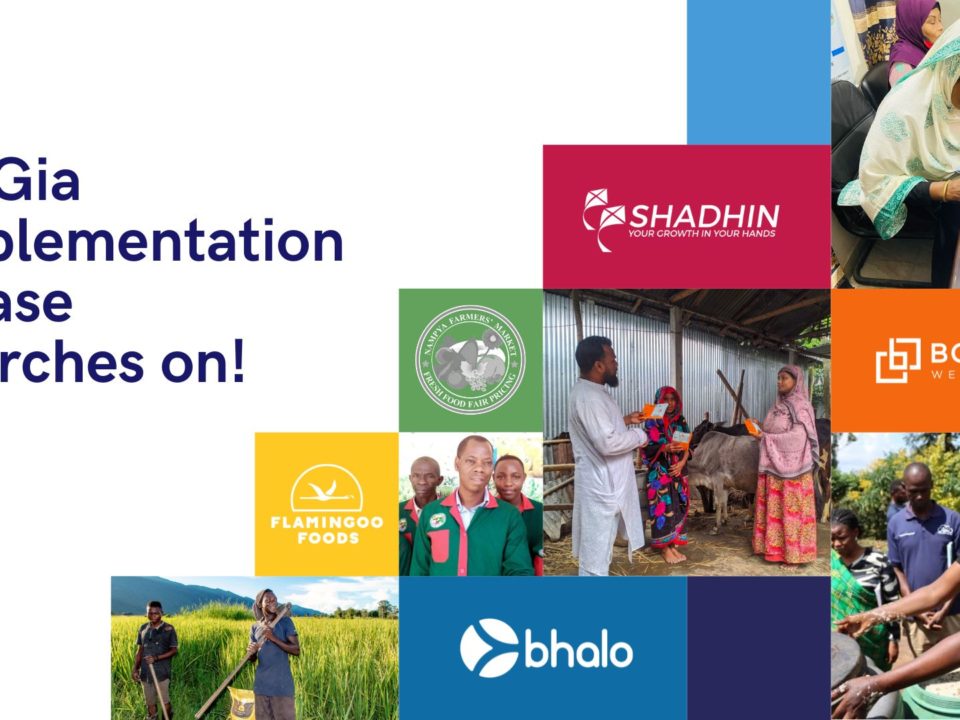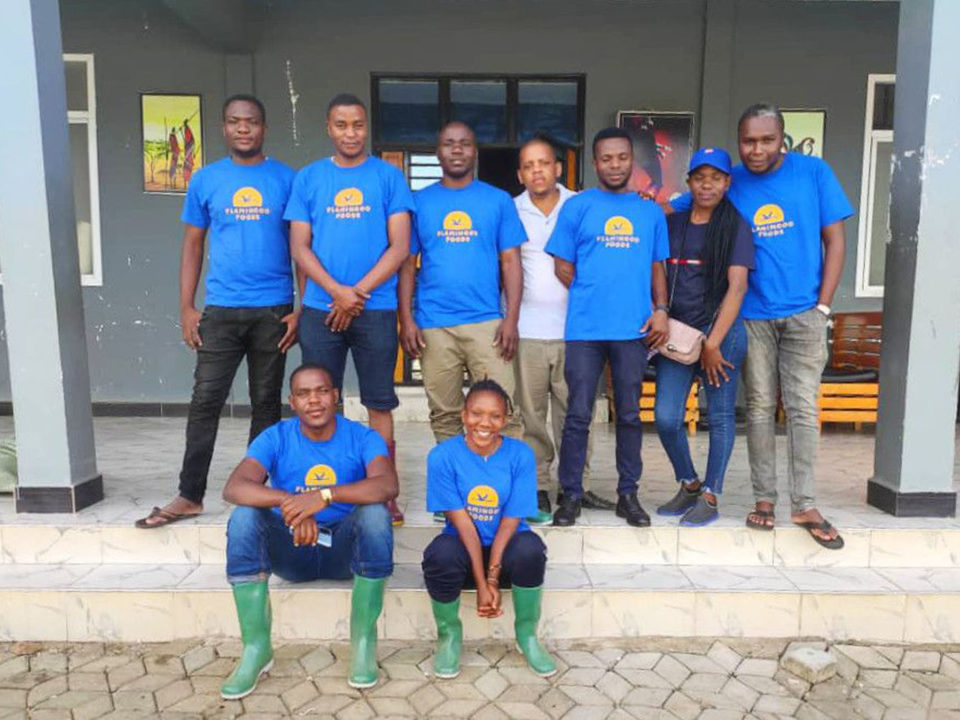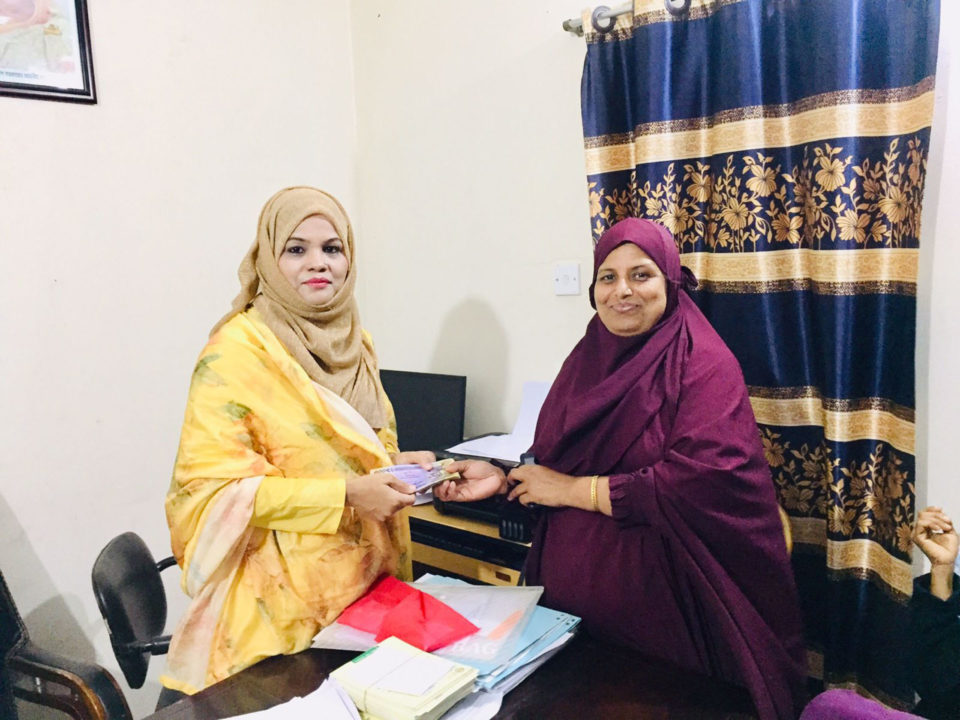We interviewed the Borlaug team, got insight on their origins, vision, and impact. They explained the partnerships, projects, and future endeavors of Borlaug. We talked about blockchain technology and its effects on agri-value chains.
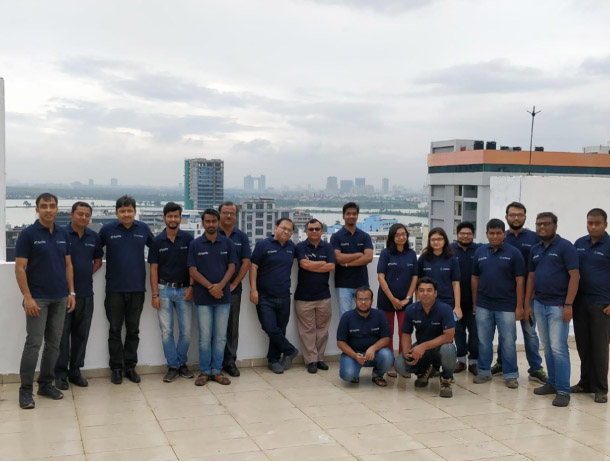

How did you come up with this idea, can you tell us about the origins of Borlaug?
Debmalya (Co-founder & COO): Ayon and I have been friends since kindergarten. When I shared the idea, we immediately started conceptualizing our approach. Ayon met Vijay (Co-founder & CTO) in the Netherlands quite a few years back. He had this vision of building a blockchain for sustainable value chains. We saw synergy from day 1, and that was the history of our founding team.
Ayon (Co-founder & CEO): The idea started from a single goal of our desire to track the origin of the food that we are consuming. I come from a process consulting background and have been building lean processes in complex supply chains for food commodities. In multi-layer, multi-party value chains, opacity is most prevalent in the early tiers, where brands have limited visibility and control. This can potentially lead to environmental, social, and economic impacts across the ecosystem.
Our founding team believed that decentralization and interoperability hold the key to developing sustainable food systems. Hence, we have created a decentralized platform that does not rely on any single authority and yet interoperable to diverse enterprise systems and blockchain networks.
Why did you apply for the SDG Impact Accelerator Digital Agriculture program funded by the Turkish Government and run through the partnership of the Ministry of Foreign Affairs of the Republic of Turkey, UNDP and UN Technology Bank?
We applied for SDGia as it was a great opportunity to scale our BWS solution in our target geography and increase brand visibility across geographies. Our key focus was to leverage our BWS blockchain to drive impact for farmers in Africa and assist farmers, especially youth and women, to adopt novel technology for sustainable farming practices in the supply chain.
There are 17 Sustainable Development Goals; which are your main focuses?
SDG 1.4–Verified Identity systems ensure equal access to economic & social benefit schemes.
SDG 2.3 and 2.4–Ensure sustainable practices & higher productivity, especially for women-led farms.
SDG 5. b–Empowering women and youth with equal access to technology.
SDG 8.1–Economic growth for women, youth & smallholders via access to credit and markets.
SDG 9. a and 12.6–Supply chain traceability and VSS Certified produce ensuring compliance
What was your motivation behind Borlaug, has it evolved?
Increasing supply chain disruptions and complex regulatory compliances are impacting global businesses. Enhanced traceability in complex multi-layered procurement processes using BWS achieve a broad set of interrelated objectives, including early tier visibility of the physical supply chain, verifiable compliance, sustainability assurance and financial transparency via a low code platform. The information we gather is securely stored, inherently auditable and unchangeable. We are building a trusted settlements platform to enable responsible sourcing for complex value chains where stakeholders have visibility across many siloed enterprise systems and blockchain networks.
Our BWS solution is trying to solve the following problems in the food chain:
- Need for Physical Supply Chain Visibility: Lower visibility at sub-tier supply chains leads to limited predictability in production and inconsistent quality & compliance.
- Need for Sustainability Assurance: Agri CPG brands need to stay on top of a dynamic sustainability imperative. Lack of accountability and visibility in tier 2 and 3 suppliers’ processes deter sustainable sourcing initiatives for global brands. As per Forbes reports, only 21% of the companies have some visibility into processes around sustainable sourcing of raw materials for their suppliers and sub-suppliers.
- Need for Financial Transparency: Key documents in any trade involves Purchase Orders, Warehouse Logs/Receipts, and Invoices. Tokenization of these artifacts can provide a single source of truth, prevent widespread procurement frauds (double funding), and accelerate settlements, especially for multi-party, cross-border trades.
- Need for Interoperability: The 2020 coronavirus pandemic exposed weaknesses in supply-chain systems that are diverse and siloed. Organizations globally (in both the public and private sectors) showed varying degrees of ability to respond. This revealed a breakdown in the collaboration required to track, trace, authenticate, finance, and clear goods, supplies, etc., through trade channels in a trusted, verifiable, and efficient manner.
Such global events highlight the need for an interconnected and interoperable supply chain in a world after COVID-19. With mushrooming Blockchain networks, the need for cross-chain linkages is growing for true traceability across a multi-tier supply chain.
What kind of impact do you think Borlaug has had on people?
BWS is working to positively impact all the stakeholders in agri-value chains, especially those at the bottom of the pyramid, i.e., farmers. We have secured a local partnership with Masha Coffee to provide our BWS technology to conduct various supply chain operations as a part of the SDG Impact Accelerator. Thus, we are working as a technology partner with Masha Coffee, providing our BWS technology to Masha Quality Holdings for digitizing and monitoring the socio-economic & agronomic parameters of farmers. By storing supply chain data on the blockchain and enabling easy data sharing among the relevant stakeholders, there is better and faster price realization. The farmers are getting paid instantly for their produce. They are earning more for quality and ethically sourced coffee with respect to the environment and social welfare. This will further enable crop improvements, and marketability as the entire history of the produce is available in one place.
BWS has enabled Masha coffee to have farmer information readily available and easily retrievable for tracking their farmers, thus facilitating decision-making. This will range from tracking the impact of farmer capacity-building programs to tracking the quality of coffee from different farmers and geographical locations, enabling the implementation of targeted actions. The trade platform simplifies buyer interaction, improves inventory management, and makes other business transactions like invoicing more efficient.
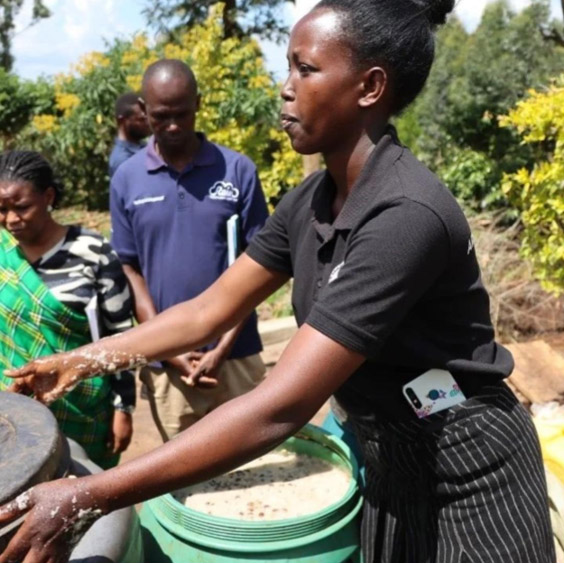
In order to increase production, more and more farmers are being encouraged to join coffee farming and follow good agricultural practices for better yields and higher prices for their production. Continuous interactions between farmers and field officers make them more aware of the benefits of good agricultural practices. The farmers are given assurance for higher procurement of their coffee production.
In our other projects, the BWS platform has enabled olive farmers in Spain to have wider access to market and capital by facilitating direct trade between the farmers and consumers by shortening the supply chain and removing unnecessary intermediaries. This allows farm-to-plate delivery of cold pressed extra virgin Olive Oil. As a result, there has been a six-fold increase in the incomes of olive farmers.
The Platform is doubling the beekeepers income in Malda, West Bengal, where we have partnered with ICAR for traceability in the honey value chain. The program spans across 120 villages and about 300 apiaries have been onboarded and monitored on the platform. Due to quality information being collected, it has resulted in access to credit and forward markets. BWS solution has enabled wider market access, certified honey with test reports, and reduced process waste and transaction risk while improving compliance and fair governance.
BWS Blockchain traces the life-cycle of Raw Jute from procurement to spinning mill for better decision making and reducing wastage. With real-time data and information symmetry availability, as part of phase 1 of the project, we have improved 20% efficiency in raw jute procurement and an 18% reduction in detention losses. We believe our technology can increase 30-40% efficiency if we build a transparent value chain right from the source, i.e., producers and farming collectives.
What were some of the difficulties you have seen farmers face that influenced you to found Borlaug?
Lack of access to finance due to information asymmetry and lack of quality information, market access for their produce and ability to enter forward contracts, issues related to compliance and certification, and unsustainable agronomic practices due to lack of knowledge.
What were some of the challenges you have faced, and how did you overcome them?
Customer Education: Blockchain is an evolving technology, and many businesses have been skeptical of early adoption. We have always partnered closely with our customers and leading web3 consortiums to build trust. Moreover, BWS is open source and backed by the web3 Foundation.
Regulatory Risk: Globally, the regulatory landscape for blockchains is unknown, varying from bans of cryptocurrencies to some degree of regulation or no regulation at all. Borlaug uses GRAM as a native currency token for submitting transactions. GRAMs must be purchased with fiat currency. GRAM is not a tradeable asset but will comply with any regulations.
Value Transfer Risk: As blockchain facilitates the peer-to-peer transfer of value (assets, identity, or information) without the need for a central intermediary, this new business model exposes the interacting parties to lower yet new risks previously managed by central intermediaries. We mitigate this using governance where multiple parties vote and allow value transfers.
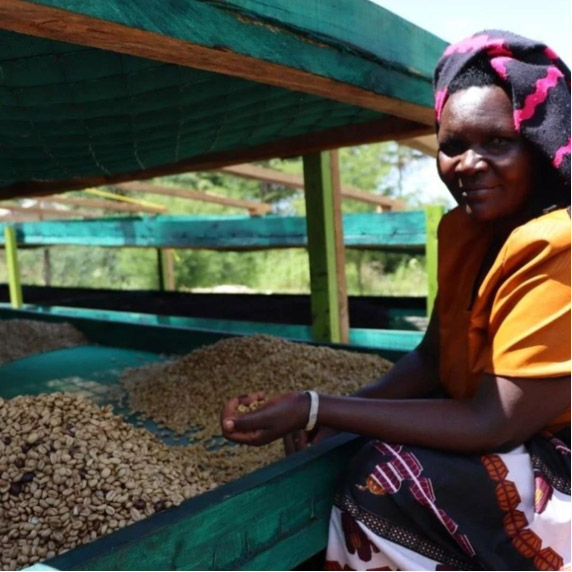
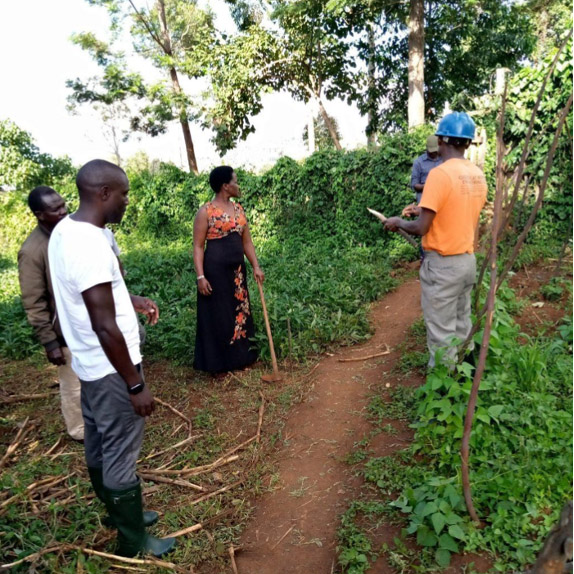
What are the reactions of the beneficiaries as you go along?
Our beneficiaries who have used the BWS technology have had an overall positive reaction. The Borlaug Clarity app is easy-to-use and helps collect high-quality data in different ways, from simple text to location data. This app allows relevant stakeholders to monitor farmers in real-time while tracking production processes over time without re-entering basic information. Since all the data is readily available and accessible, farmers avail better prices for their quality coffee. BWS technology enables coffee traceability to enhance buyer confidence regarding the source of the coffee.
Some reviews we have gotten:
- “I have entered a lot of adopters today with no problems at all. Borlaug CX is really nice to work with” –Bas Visser, Flor Y Sabor.
- “Borlaug Clarity is an easy-to-use app that helps to collect high-quality data in different ways ranging from simple text to location data. We can monitor the farmers in real-time while tracking production processes over time without having to re-enter basic information.” –Masha Quality Holdings.
- “We were able to seamlessly integrate our CTRM platform to the blockchain” –Koushik Sarkar, Commodity Star.
- “The Borlaug Clarity app helped us to easily digitize farmer information to streamline the internal FPO supply chain” –Dr. Dipak Nayak, Principal Scientist at ICAR-CISH.
How did you get into blockchain technology initially?
Vijay: I built distributed systems for 20+ years, as an ex-Ethereum core developer and token standards and with extensive experience in building purpose-built decentralized systems architecture. I have been one of the core group members for Ethereum’s security token standard infrastructure development.
Ayon: My experience working across multiple supply chains helped me understand the importance of a decentralized network for achieving transparency in supply chains. Blockchain was the way to go; hence, we embarked on the journey to achieve transparency right from the source.
Debmalya: I come from an Insurance and Insurtech background with interest in decentralized finance. I had been consulting on various solutions related to index insurance and how smart contracts could play a critical role in bridging the trust deficit.
In what ways do you think blockchain technology can benefit agri-value chains?
Blockchain technology can transform the entire agriculture industry by building traceable, transparent, and sustainable agri-value chains. It simplifies all stages of the agricultural supply chain, improves food safety, and eliminates counterfeit products.
The benefits of blockchain technology in agri-value chains are
- Increased accountability, efficiency & visibility
- Access to credits & markets for farmers
- Facilitating information sharing throughout the supply chain
- Accurate tracking of products and creating a trustworthy chain
- Better governance, operational visibility & financial transparency
- Real-time quality data for better decision-making across the value chain
- Achieving sustainability goals & ensure compliance with regulatory standards
- Short resilient supply chains reduce food miles & empowering local communities
- Single source of truth building trust between all the stakeholders in the value-chain
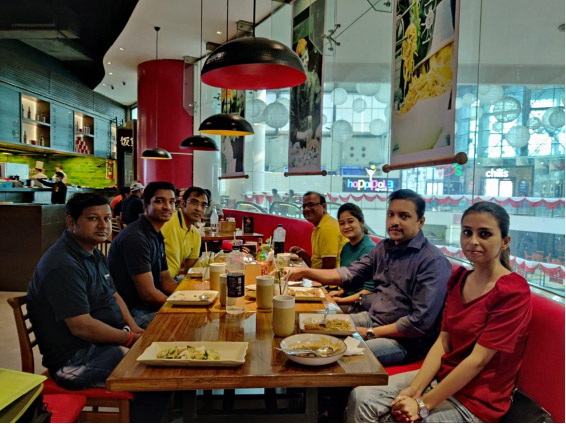
You have been working on the project “Driving Sustainability and Traceability of the Coffee Value Chain on BWS Blockchain.” In the context of SDGia Implementation Phase. Can you explain it to us?
With Borlaug Web Services, we provide a Blockchain SaaS platform that ensures end-to-end transparency of opaque value chains. The BWS platform is being implemented for capacity building, certification, and supply chain efficiency, especially for women and youth in Uganda. We are digitizing the coffee value chain by onboarding and monitoring farmer activities, conducting compliance audits on the blockchain for producing VSS-certified coffee and finally tracking the coffee production batches. These activities will therefore increase the efficiency and visibility of operations and stakeholders. Using the BWS platform, we aim to unlock revenue potential by building an inclusive coffee value chain focused on women and youth.

